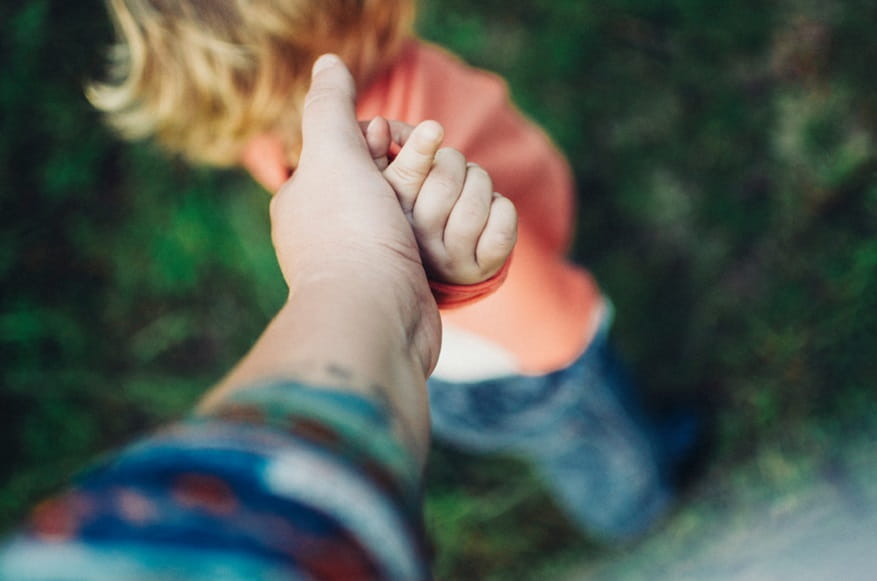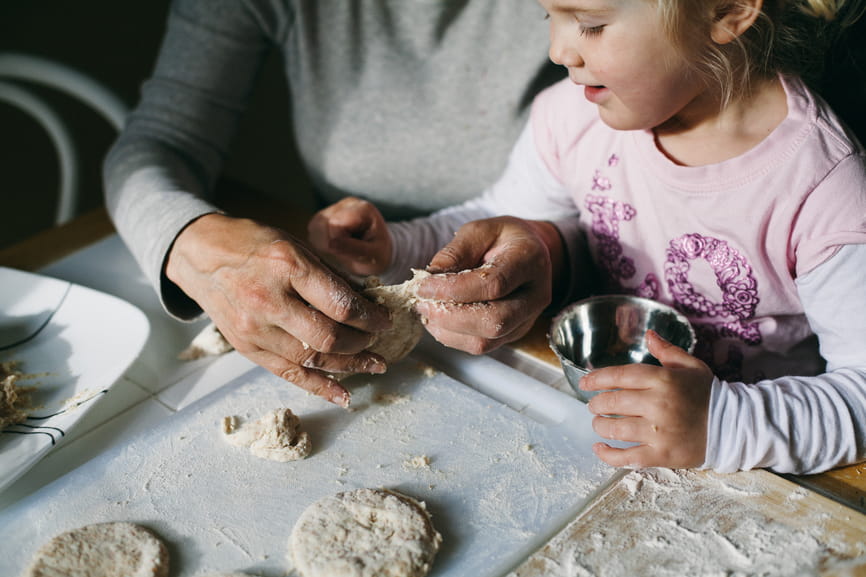Connect with Courage: How to Help Children Cope with the Death of a Loved One

When children lose a parent or a beloved family member, it can be difficult to know what to say or what to do to help. It’s common and normal for children to have an increased sense of fear and anxiety after a loss, according to the non-profit Dougy Center, which has been providing a safe space for grieving children and families to share their experiences.
The reality of just how hard it can be landed close to home, when my daughter died suddenly and unexpectedly on Valentine’s Day a couple of years ago. She left behind a grieving family, including a little boy, then age 10. Together, my grandson and I have tried to find our way through this journey of grief that included the fearful anticipation of the first holidays without his mom.
Nothing erases the pain of grief. But here are 8 ways you can help support children going through this journey:
1. Keep routines consistent.
Grief is exhausting. A child who has experienced loss may be more tired than usual and will need opportunities for consistent nap and bed times that are relaxing and peaceful. According to the Dougy Center, consistency and predictability help children feel safer after a death. Some children find comfort sleeping with a clothing item of a loved one.
2. Talk about the person who died.
Our natural tendency is to avoid talking about the person who died. We don’t want to make the grieving child sad. However, children often struggle to remember a parent’s voice or personality. Be willing to ask, “What was your dad like? What do you most remember about him?” Recently, my grandson said to me, “I can’t remember my mom’s voice.” Saved to my phone is a cherished short video clip of my daughter talking and laughing a few months before she died. I asked my grandson if he would like to watch the video clip. He did. Afterwards, he said, “Now I remember. Her laugh was loud.”
3. Do your best to avoid clichés, such as, “Your mom is in a better place.”
We often don’t know what we can say to help a child feel less sad. Truth be told, there are no words that lessen grief. It simply is. Find a way to be okay with no words, if necessary, and listen for child-initiated opportunities to tip-toe into a dialogue about the person who has died.
4. Answer the questions children ask.
According to the Dougy Center, some fears and worries that children have about death are “rooted in a lack of knowledge.” You can help children manage their fears by asking them if they have questions about the death of their loved one. Answer their questions honestly, and in language they understand.
5. Help children take a break from grieving.
Young children have the distinct ability to step away from extreme emotional stress through play. Adults often feel that children need to talk about their sadness. We want to make sure they aren’t stuffing their emotions or avoiding their pain. But that’s adults. Children find relief from stress through play. And it’s a good thing.
6. Consider memorial activities that the child has an opportunity to choose.
Some children find comfort in lighting a candle for a parent or sibling on a special day, such as a birthday. My grandson has a candle that he says, “smells like my mom.” It hasn’t been lit yet, but I anticipate he might choose to light it on Valentine’s Day. Or maybe not at all. Older children may want to write messages to their loved ones and place them in balloons to be released outside. Some families place an empty chair at the holiday dinner table to represent a loved one’s memory. Be creative, but give the child choices and an opportunity to choose what feels best.
7. Be patient. Grief has no time limit.
No matter how long the child has grieved the loss, don’t say, “It’s time to move on.” When it’s said to a child, he may hear that it’s time to forget about his mom. On the contrary, we want to help children positively remember their loved ones for the rest of their lives.
8. There is a way forward.
Most children who lose a parent or sibling will eventually find strategies to live in the world with their loss, but the loss itself will always profoundly affect them. I don’t expect my grandson to ever feel good about losing his mom. I do expect, with support and love, he will find a way to live a full and meaningful life.
The Dougy Center has many online resources for families who need help supporting children through the process of grieving.




